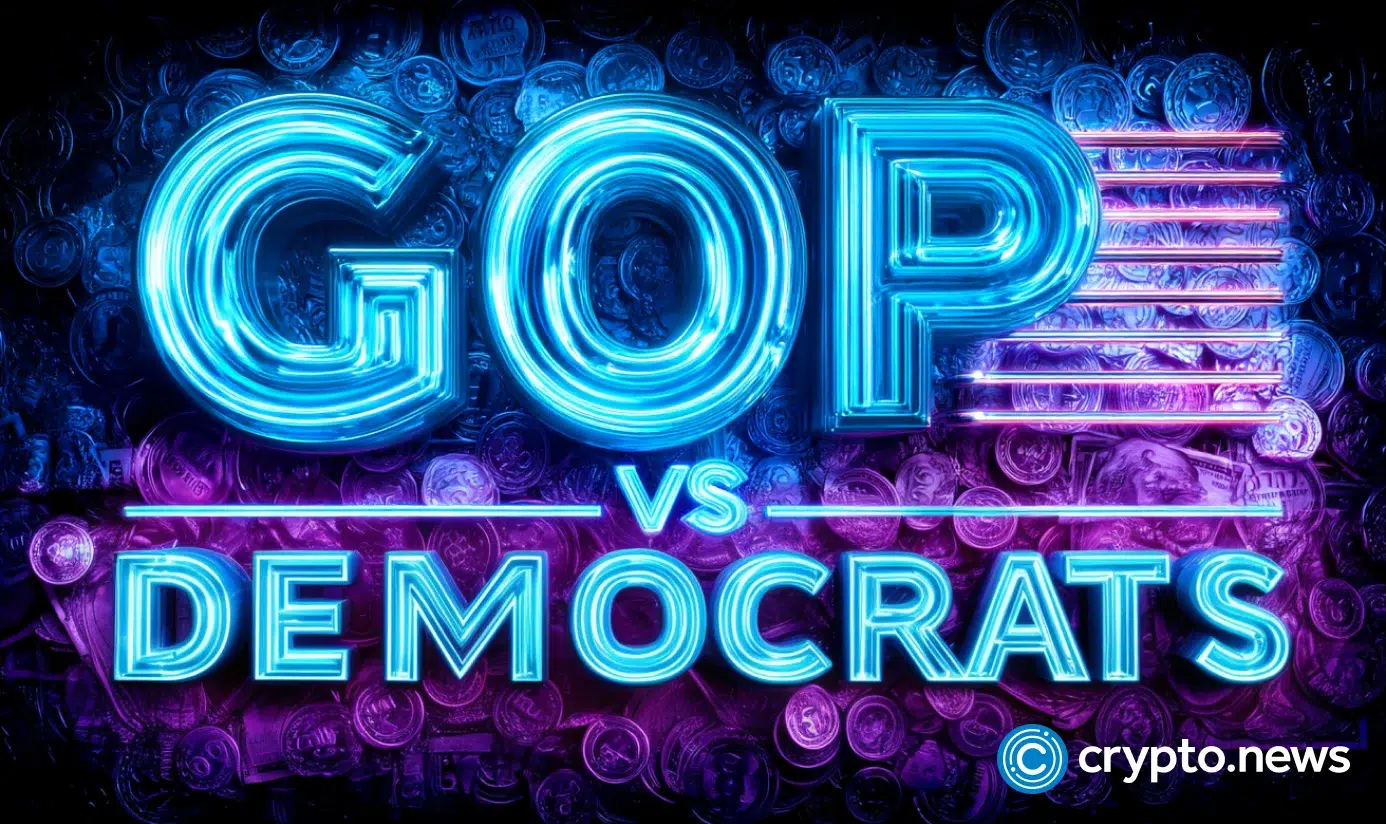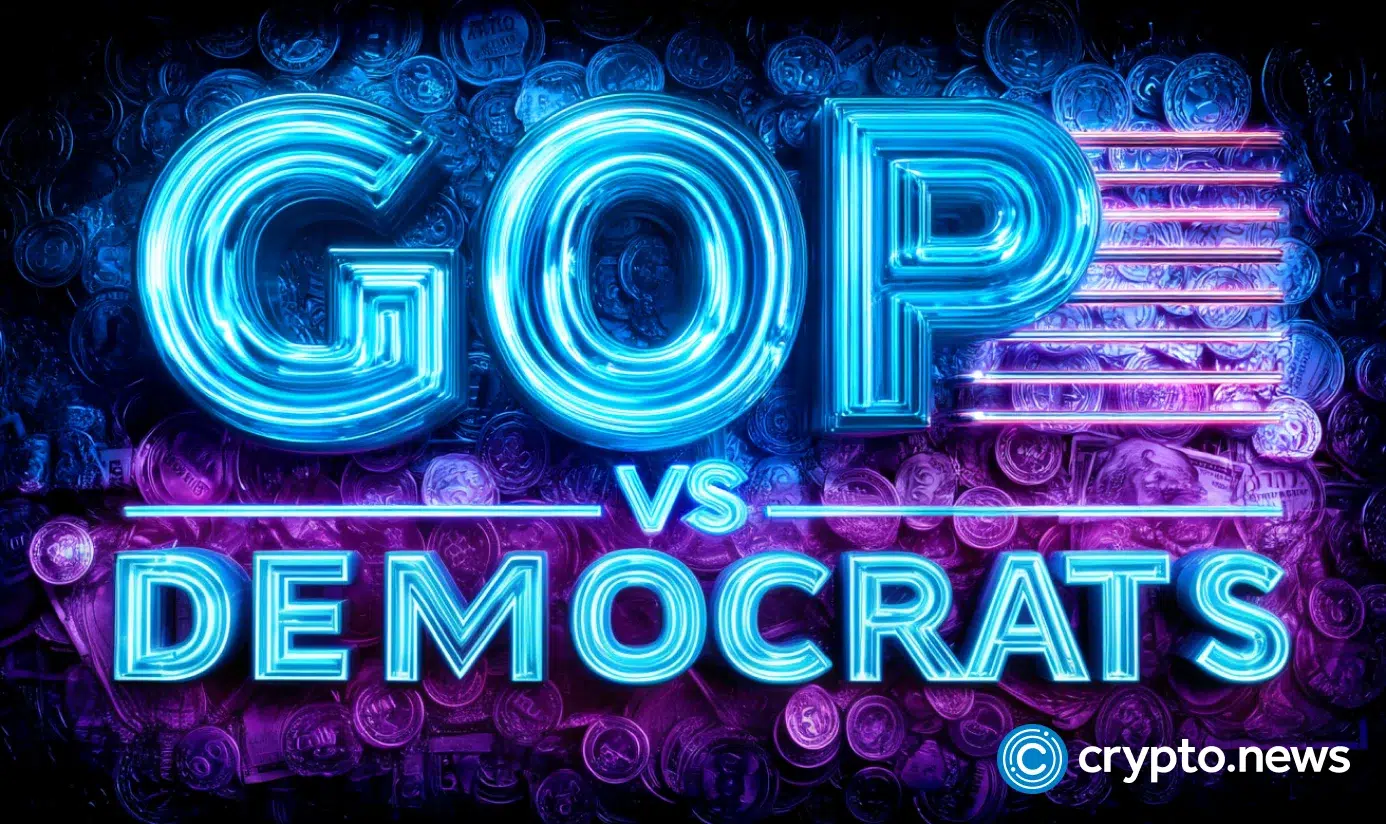

Just days before its Senate vote, the GENIUS Act hit a political minefield: Trump family profits, UAE cash, and nine Democrats demanding answers. What really happened?
GENIUS Act hits new resistance
On Feb. 4, a bipartisan group of U.S. senators introduced the Guiding and Establishing National Innovation for U.S. Stablecoins Act, also known as the GENIUS Act.
The bill sought to bring legal clarity to a market that now accounts for more than $240 billion in market value, with tokens like Tether (USDT) and USD Coin (USDC) facilitating most crypto transactions worldwide.
Senator Bill Hagerty led the introduction, joined by co-sponsors from both parties including Tim Scott, Cynthia Lummis, Kirsten Gillibrand, and Angela Alsobrooks.
The Senate Banking Committee advanced the bill with an 18 to 6 vote on Mar. 13, with five Democrats supporting the motion. At the time, it was considered a legislative priority for the Trump administration, which had outlined a 100-day policy agenda that included crypto regulation.
Senate Majority Leader John Thune scheduled a vote for late May, and White House AI and crypto czar David Sacks confirmed in a Bloomberg interview that the administration expected progress before the deadline.
The environment changed on May 1, when World Liberty Financial (WLFI), a firm linked to the Trump family, announced a $2 billion dollar deal with MGX, a UAE-based financial group.
Just two days later, on May 3, nine Senate Democrats announced their opposition to the bill unless additional anti-money laundering and national security measures were included.
Several names on the list had previously supported the bill during the committee phase, including Angela Alsobrooks, Mark Warner, Andy Kim, and Lisa Blunt Rochester.
As the bill now faces a higher threshold to clear the Senate, with seven additional Democratic votes required, its passage before Memorial Day appears increasingly uncertain.
Let’s explore how this situation unfolded and why the GENIUS Act has drawn sudden resistance after early signs of bipartisan support.
What’s inside the GENIUS Act
Despite their growing use, stablecoins currently operate under a patchwork of state regulations, with no clear federal framework in place. The GENIUS Act proposes to change that by defining who can issue dollar-backed stablecoins and under what conditions.
Under the proposed conditions, only firms that qualify as “permitted payment stablecoin issuers” would be allowed to operate, including bank-affiliated subsidiaries and federally approved non bank entities.
These issuers must maintain one-to-one reserves using high-quality liquid assets such as cash or U.S. Treasuries, and all funds must be kept in segregated accounts to protect customer holdings from institutional risk.
To ensure transparency, issuers would be subject to monthly reserve audits conducted by independent registered firms. Senior executives, including the chief executive and chief financial officer, must personally certify the accuracy of these reports.
The structure of regulatory oversight depends on the size of the issuer. Smaller issuers can choose to remain under state regulatory systems, provided they meet the federal baseline.
Those managing more than $10 billion dollars in stablecoins would be supervised jointly by the Federal Reserve and the Office of the Comptroller of the Currency.
For issuers with more than $50 billion in circulation, the law requires annual financial audits, with specific scrutiny on any transactions involving related parties. Firms that fail to comply with these requirements face a daily penalty of $100,000.
In addition to financial safeguards, the bill applies the anti-money laundering provisions of the Bank Secrecy Act. It also mandates transparent and enforceable redemption policies, so users can reliably exchange stablecoins for U.S. dollars.
Importantly, the legislation excludes algorithmic stablecoins from its framework. The bill calls for the Treasury Department to conduct a separate study on how to handle such models in the future.
Furthermore, issuers covered under the GENIUS Act are not allowed access to Federal Reserve master accounts, limiting their ability to integrate directly with the banking system, a restriction that could shape how these firms operate within U.S. financial infrastructure.
Proponents of the bill argue that it would reinforce the role of the U.S. dollar in digital finance and increase demand for government debt through mandated reserve holdings.
However, critics have raised structural concerns. One issue, cited by the Atlantic Council, is the potential for a loophole that might give foreign issuers, such as Tether, a competitive edge over domestic firms.
Another concern is the absence of restrictions on large companies. For instance, entities like Amazon could theoretically issue their own stablecoins under this framework, an outcome some lawmakers view as risky.
Trump-UAE deal sparks controversy
The turning point in the GENIUS Act debate came with an announcement that, on the surface, looked like a business expansion.
On May 1, at the Token2049 conference in Dubai, World Liberty Financial revealed a partnership with MGX, a UAE-linked firm supported by Abu Dhabi’s Mubadala investment fund and the artificial intelligence company G42.
The agreement centered around the use of USD1, a dollar-backed stablecoin issued by World Liberty Financial, to settle a $2 billion dollar investment into Binance.
Binance, which had previously settled a $4.3 billion case with U.S. authorities in 2023 for money laundering violations, remains the largest crypto exchange by volume.
The use of a U.S.-based stablecoin to facilitate such a transaction raised immediate questions among lawmakers and policy analysts, especially given the scale and political affiliations involved.
World Liberty Financial was established in late 2024 by the Trump family. President Trump has positioned himself as a public advocate for crypto innovation, while his sons Eric, Donald Jr., and Barron have taken on the role of brand ambassadors within the web3 space.
The project is led by Zach Witkoff, the son of Steve Witkoff, who served as Trump’s Middle East envoy. Since its launch, USD1 has grown rapidly and, by May 5, has reached a market cap of $2.1 billion, placing it among the top five stablecoins globally, according to CoinMarketCap data.
The Trump family maintains a majority ownership in World Liberty Financial through a separate holding structure, giving them a 60% stake in the projects.
Based on estimates from The New York Times, this position could yield between $30–50 million annually in Treasury interest alone, since USD1 is backed entirely by short-term U.S. government securities.
Further amplifying USD1’s reach is its integration with the Tron (TRX) blockchain, which is associated with crypto investor Justin Sun. Sun is also reported to have purchased $75 million worth of WLFI tokens, the native asset tied to World Liberty Financial.
Since the bill allows nonbanks to become permitted stablecoin issuers and does not prohibit government officials or their families from holding ownership stakes, some lawmakers argue that the structure could unintentionally favor entities like USD1.
These concerns are further heightened by the presence of Commerce Secretary Howard Lutnick, who maintains close ties to Tether through his firm Cantor Fitzgerald.
Lutnick’s influence over the administration’s digital asset policy has been noted in multiple reports, including one by Forbes.
The broader fallout and democratic pushback
Democratic resistance to the GENIUS Act did not emerge overnight. According to multiple aides and lobbyists familiar with the discussions cited by Politico, concerns had been building privately for several days before the public statement on May 3.
Even some senators who had supported the bill during the committee stage grew uneasy as new revisions were introduced. The updated version, circulated shortly before the scheduled floor vote, appeared to walk back several negotiated provisions related to financial safeguards and enforcement mechanisms.
The revised draft prompted a coordinated response led by Senator Ruben Gallego of Arizona. In a statement issued on May 3 and followed up with a post on X the next day, Gallego noted that Democrats had been engaging in talks with Republicans for weeks.
He argued that the version advanced for final consideration did not reflect key improvements that had been under discussion and failed to preserve prior gains. These included stricter measures on money laundering and stronger guardrails for financial system protection.
Among the most vocal critics was Senator Elizabeth Warren. She framed the Trump-UAE agreement as a direct example of what could go wrong under the GENIUS Act.
On May 4, she posted that the Trump family’s stablecoin had surged in value due to what she described as a questionable arrangement involving a foreign government. She argued that it would be inappropriate for the Senate to advance crypto legislation that could legitimize or benefit such transactions.
Warren’s opposition to the bill was consistent with her earlier efforts. Back in March, she had proposed a series of amendments during the committee process.
These amendments included a ban on stablecoins tied to criminal activity and additional restrictions on foreign issuers. None of her proposals made it into the final version.
Speaking before the Senate Banking Committee in March, Warren also warned that the bill might allow figures like Trump and Elon Musk to create their own versions of digital cash under limited oversight.
She raised concerns about the potential for large technology companies to enter financial markets without sufficient regulatory boundaries.
Other Democratic lawmakers echoed different parts of this critique. Senator Jeff Merkley proposed rules that would prohibit elected officials from personally profiting from crypto ventures, citing the risk of perceived conflicts of interest.
Senator Jack Reed pointed to a Drug Enforcement Administration report that linked stablecoins to $500 million in fentanyl-related transactions between 2022 and 2024, raising questions about the role of digital currencies in illicit finance.
Senate Minority Leader Chuck Schumer, who has grown more open to crypto policy over the past year, reportedly advised fellow Democrats not to commit to supporting the bill in its current form.
In a private caucus meeting held on May 2, he encouraged members to hold their support until further changes were secured. One of his stated concerns, according to Democratic aides, was how the bill would address foreign-based issuers, with specific mention of USDT.
Republican lawmakers responded by defending the legislation and questioning the motives behind the sudden shift in tone.
Senator Tim Scott described Warren’s public comments as exaggerations, saying they reflected fear-based messaging rather than policy-based critique.
Still, the withdrawal of support from key Democrats has placed the bill’s path forward in doubt. What had once appeared to be a bipartisan framework is now caught in a debate over influence, compliance, and whether the proposed rules can truly insulate the market from abuse or favoritism.

Source link

